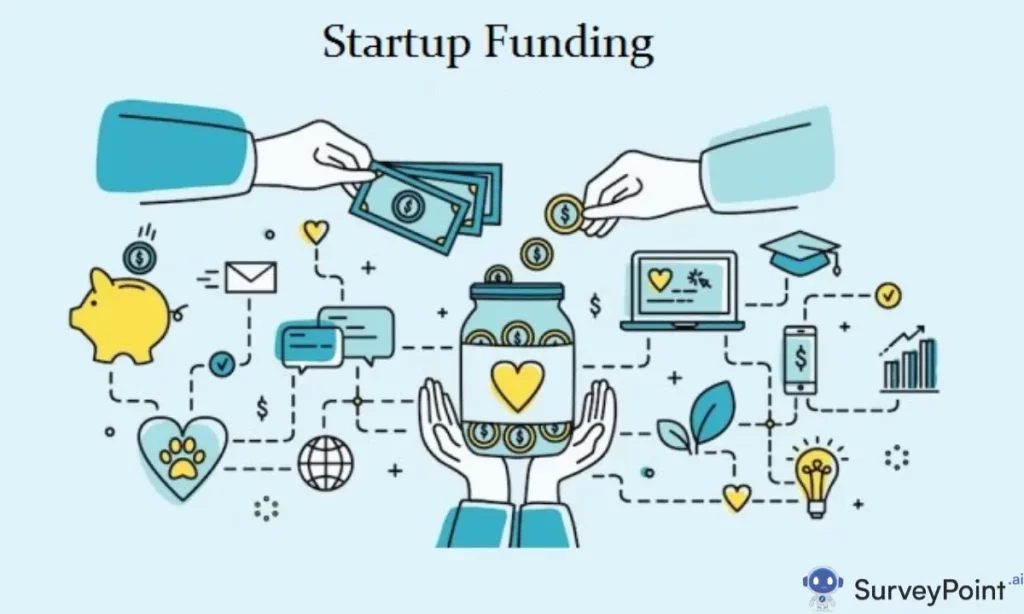
Starting a business is like embarking on an adventure. You have your idea, your passion, and your determination. But often, what you also need is funding – the fuel that propels your startup from concept to reality. In this comprehensive guide, we’ll explore what startup funding is, the various stages involved, how to secure funding for your venture, and whether seeking funding is the right move for your startup.
What is Funding for Startups? Funding for startups refers to the financial resources acquired to establish and grow a new business. It includes capital raised from various sources such as investors, venture capitalists, angel investors, crowdfunding platforms, or even personal savings.
Understanding the Stages of Funding:
- Seed Funding: This initial stage involves raising capital to develop the basic idea or prototype. Seed funding often comes from the founders themselves, friends, family, or angel investors. It helps cover early expenses like market research, product development, and initial operations.
- Series A Funding: Once a startup has proven its concept and achieved some traction, it may seek Series A funding to scale its operations. This stage involves larger investments from venture capitalists in exchange for equity. Series A funding is typically used to expand the team, enhance product offerings, and increase market reach.
- Series B, C, D, etc.: As the startup grows, it may go through additional rounds of funding to fuel further expansion. Each subsequent round, such as Series B, Series C, and so on, involves larger investments and aims to support continued growth, market dominance, or even preparing for an IPO (Initial Public Offering).
How to Get Funding for Your Startup:
- Develop a Solid Business Plan: Investors want to see a clear vision of your business and how you plan to execute it. A well-thought-out business plan outlining your product or service, target market, revenue model, and growth strategy is essential.
- Identify the Right Investors: Research and target investors who have a history of funding startups in your industry or niche. Whether it’s angel investors, venture capitalists, or crowdfunding platforms, aligning with investors who understand your business can increase your chances of success.
- Pitch Your Idea Effectively: Master the art of pitching your startup to potential investors. Your pitch should be concise, compelling, and highlight the unique value proposition of your business. Practice delivering your pitch with confidence and clarity.
- Build Relationships: Networking is crucial in the startup world. Attend industry events, join entrepreneurial communities, and leverage your connections to build relationships with potential investors. Establishing trust and rapport can significantly impact your fundraising efforts.
- Demonstrate Traction: Show investors that your startup is gaining traction and achieving milestones. Whether it’s acquiring customers, generating revenue, or securing partnerships, tangible evidence of progress can instill confidence and attract investors.
Is It Good to Get Funding for Your Startup?
- Equity Dilution: Accepting funding means giving up a portion of ownership in your startup. Consider whether the benefits of funding outweigh the potential dilution of control.
- Pressure to Perform: Securing funding often comes with expectations from investors to deliver results. Be prepared for increased scrutiny and pressure to meet targets and milestones.
- Financial Responsibility: Taking on external funding means taking on financial obligations. Ensure your business model is sustainable and capable of generating returns to satisfy investors.
- Alternative Funding Options: Explore alternative funding options such as bootstrapping, crowdfunding, or revenue-based financing. These methods offer greater control and flexibility but may require slower growth.
Conclusion:
Startup funding can be a valuable catalyst for growth, providing the financial resources needed to turn your vision into reality. However, it’s essential to approach fundraising strategically, weighing the benefits against the potential drawbacks. Ultimately, the decision to seek funding should align with your business goals, values, and long-term vision for success. With careful planning, diligent execution, and a clear understanding of your funding options, you can navigate the fundraising process and position your startup for sustainable growth and success. For more information checkout- surveypoint.ai




